Cloud computing represents one of the greatest strides in how business is conducted. It has improved every facet of digital operations, including real-time communication and collaboration, mobility and scalability and data security.
That’s why migrating to the cloud is an important step in your organization’s digital transformation.
Of course, many businesses are intimidated by the thought of migrating to a cloud platform. In this article, we will show you that mitigating cloud migration challenges isn’t as hard as it seems.
By understanding the most common migration hurdles, you can effectively anticipate how to handle them.
The 7 Key Cloud Migration Challenges
Let’s examine seven common migration challenges and how to address them.
1. Prepare a Thorough Migration Strategy
Rushing headlong into the adoption of any new technology is a bad idea. In fact, the best way to minimize risk is to formulate a solid strategy.
This means conducting a migration assessment, running a cost-benefit analysis (CBA), and implementing a change management plan.
- The migration assessment will help determine how long you’ll need to complete the process and what steps you’ll take.
- The CBA will assess the various costs associated with the migration, such as partnering with a provider, developing new code, implementing new infrastructure, and investing in employee training.
- The change management plan will assist staff in preparing for the complex organizational changes in the near-term.
| Interested in learning more about dealing with cloud migration challenges? Check out these blogs: |
2. Pay Attention to Data Privacy and Security
Many organizations worry that the cloud migration process could put their critical data at risk of being erased, corrupted, or stolen. That’s why it’s essential to speak with your provider about their privacy and security policies before initiating a migration.
Verify that your chosen vendor adheres to regulatory compliance standards and industry best practices. You should also ask specific questions, such as where your data will be stored and whether end-to-end encryption (E2EE) is supported.
3. Contextualize the High Initial Costs
Short-term costs are arguably the biggest challenge when considering a cloud migration.
Many businesses like the idea of migrating to a cloud environment, but shy away from the prospect once the up-front fees are accounted for.
Some of these expenses include:
- Investing in the right infrastructure
- Investing in a reputable vendor
- Rewriting application architecture
- Combating cloud latency and downtime
- Refining interoperability
- Moving away from non-cloud applications
- Training new and existing staff
Nevertheless, it’s important to recognize that the long-term return on investment (ROI) is a hallmark of cloud services. This includes increased efficiency, decreased IT expenses and streamlined operations, especially across a distributed workforce.
So, instead of scrutinizing the initial investment, take the necessary time to consider the bigger picture.

4. Opt for a Slower Transition
If your business is new to cloud migration, it’s best to take things slow.
Attempting to transfer everything in one shot is not only expensive, but invites a host of potential private and public cloud migration challenges.
Instead, start by migrating redundant or non-essential data. This will provide a good baseline of what to expect during future migrations.
That said, even if the process is smooth, you should continue to migrate data in batches. This enables you to maintain regulatory compliance without jeopardizing sensitive data.
5. Avoid Vendor Lock-Ins
Vendor lock-ins occur when a business becomes dependent on one particular provider for a product or service. It also implies that the cost of switching providers is prohibitively expensive.
Luckily, vendor lock-in can be mitigated early on.
First, arrange for more than one vendor to conduct a migration assessment. This will detail exactly how they anticipate moving your legacy infrastructure to the cloud. Ideally, your business objectives should align with their assessment.
Keep in mind that a comprehensive cloud migration strategy should include an escape clause. You’ll also want to ensure code portability and avoid proprietary formatting. Alternatively, you can bypass vendor lock-in altogether by considering a multi-cloud approach.
Get Expert Insight for Key Cloud Migration ChallengesMaster your migration with reliable cloud services from TAG. |
6. Empower Your Company Culture
Though workplace cultureisn’t easily quantified, it can become a major challenge if ignored. Indeed, your entire staff should understand the value of a cloud migration before it happens.
Here are a few steps you can take:
- Align the executive-level vision for cloud migration;
- Formally educate existing employees on the benefits of cloud migration;
- Prioritize user-friendly solutions that can be integrated into your existing applications;
- Refine the onboarding process so new hires are effectively trained in the use of your cloud tools and services.
Making this transition as seamless as possible is the best way to ensure both your people and your technology remain in harmony.
7. Mitigate Cloud Migration Challenges for CIOs
The executive-level position known as Chief Information Officer (CIO) is becoming increasingly important as more industries adopt technology-based solutions.
Broadly speaking, a CIO is responsible for the management, implementation and usability of your entire IT infrastructure. Therefore, it’s critical that they have the right skills and knowledge to oversee your organization’s move to the cloud.
If your company does not have a CIO, TAG offers virtual CIO (vCIO) services so you can have direct access to leading IT guidance and expertise. Make sure your business has the right people in the right places.
Resolve Your On-Premise to Cloud Migration Challenges With Technology Advisory Group
Transferring your data to the cloud can be challenging, but it doesn’t have to be. At TAG, our cloud migration specialists will guide you seamlessly through the process from start to finish.
With over 25 years of experience as a leading managed service provider in Rhode Island and New England, we can mitigate any challenge you encounter during your data migrations. We also offer cloud-based solutions encompassing both your private and public cloud.
Contact us today to get your cloud migration assessment.
Schedule Your Cloud Services Consultation
Ready to make a move to the cloud? TAG is ready to help with any or all cloud services from a private cloud, public cloud, or Microsoft 365 services.
